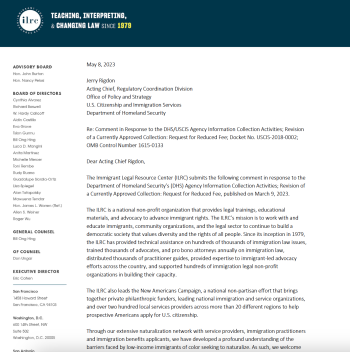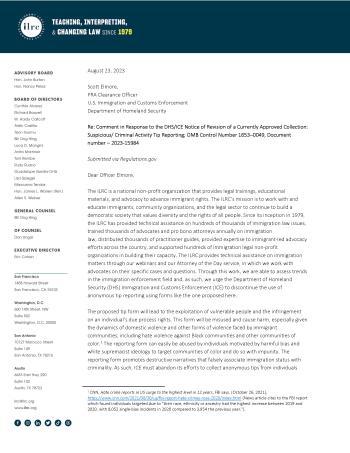
On August 23, 2023, ILRC submitted a comment on the proposed form that Immigration and Customs Enforcement (ICE) will use to collect information from the public about suspected violations. ILRC opposes the use of this form as it allows for anonymous, un-vetted information to be the basis of investigations and has a high likelihood of being used by abusers, unscrupulous employers and landlords, and others to harass and target immigrant communities.
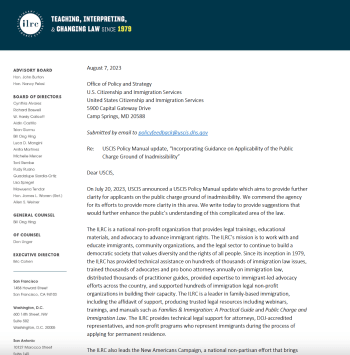
On August 7, 2023, the ILRC provided a comment to a recent USCIS Policy Manual update seeking to clarify who is subject to the public charge ground of inadmissibility. In the comment, ILRC provided suggested language for both the Policy Manual and the Form I-485 that would help to further lessen confusion that practitioners and applicants are facing in this area. ILRC also recommended changes to the USCIS web site for Form I-485 to ensure that information is consistent and accurate for applicants.
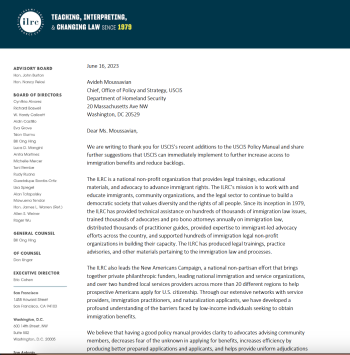
The Immigrant Legal Resource Center submitted this letter on June 16, 2023, to thank USCIS for the many changes that have already been made to the USCIS Policy Manual and to provide further recommendations for changes to the Policy Manual that USCIS can immediately implement to increase access to immigration benefits and reduce backlogs. The letter provides suggestions that include ongoing recommendations from prior letters and engagements as well as new ones.
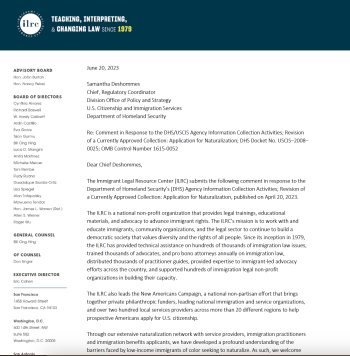
On June 20, 2023, the ILRC submitted a comment to USCIS regarding the proposed changes to From N-400, Application for Naturalization. ILRC commended the agency for a number of positive changes that streamlined and shortened the form. ILRC also made several suggestions to USCIS to clarify and narrow the information required from applicants to ensure that only relevant information is collected on the form.
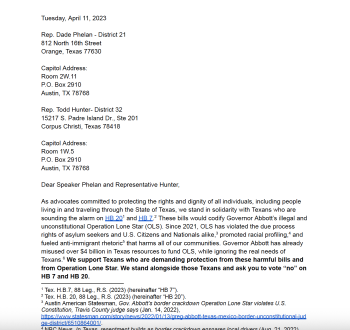
Our ILRC Texas team continues to stand alongside Texans to oppose the harmful and unconstitutional Operation Lone Star (OLS). This sign-on letter, drafted by the ILRC and signed by nearly 80 local, state, and national organizations, urges Texas officials to say “no” to two harmful bills, HB 7 and HB 20. These bills would codify OLS, promote racial profiling, and fuel anti-immigrant rhetoric that threatens our communities. The ILRC and the nearly 80 organizations that signed this letter support Texans who are demanding protection from these dangerous bills and from Operation Lone Star.
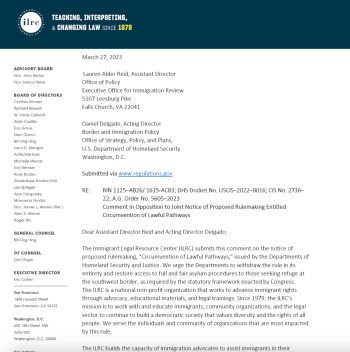
On March 27, 2023, the ILRC submitted comments on the Biden Administration’s proposed rule that would impose a rebuttable presumption against eligibility for asylum for those who transited through a third country before arriving in the United States. The ILRC detailed concerns with how this rule will essentially ban a large number of asylum-seekers from relief and how the rule impermissibly restricts the due process rights of asylum-seekers at the U.S.-Mexico border.
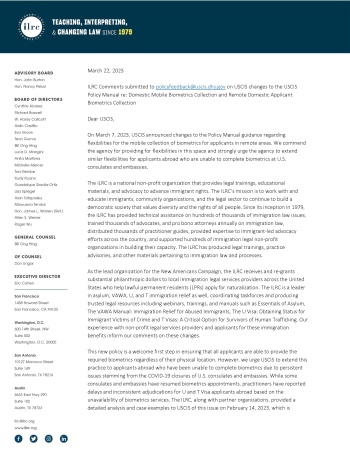
On March 22, 2023, the ILRC sent a letter to USCIS acknowledging the implementation of biometrics flexibilities for domestic benefits applicants who live in remote areas. The ILRC commended the agency on its provision of flexibilities to ensure that all domestic applicants could continue with their benefits applications regardless of physical location in the United States. The ILRC further urged USCIS to expand these flexibilities to applicants abroad and highlighted the negative effects that consulate closures abroad have had on U and T visa applicants attempting to complete their biometrics abroad.
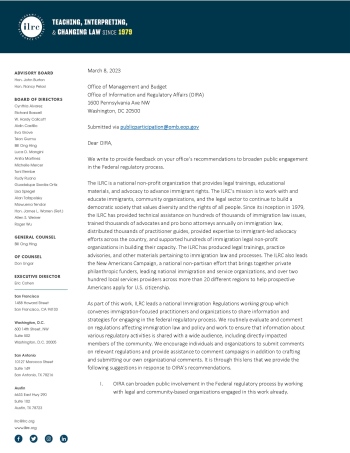
On March 8, ILRC responded to a request for input from the Office of Information and Regulatory Affairs (OIRA) on how to broaden public engagement with the public in the federal regulatory process. ILRC suggested that OIRA partner with community organizations to ensure that information is shared in the most effective way possible, including written materials and trainings. ILRC also made several process suggestions that OIRA can implement to reduce barriers to public participation.
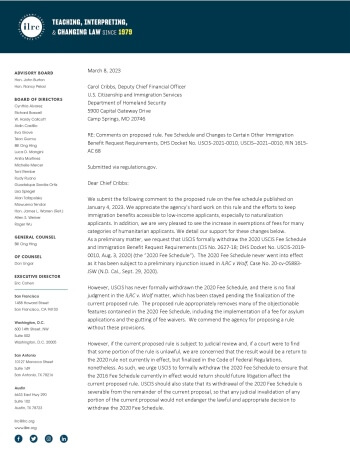
On March 8, ILRC provided comments on the USCIS proposed fee rule. In the comment, ILRC commended agency actions codifying fee exemptions. Additionally, ILRC requested that USCIS codify fee waiver eligibility standards and raise the income threshold for fee waivers. We also requested that fee increases be reduced for applications for lawful permanent residence, work authorization and family petitions, among others. Finally, the comment provides requested changes to various USCIS forms that are open for comment in conjunction with the proposed fee rule.
